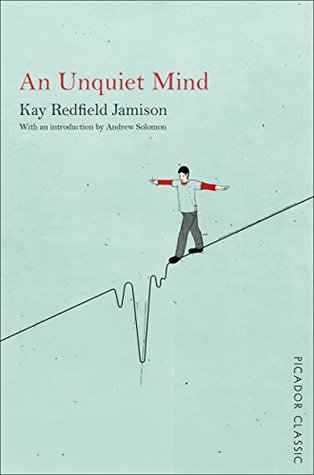More on this book
Community
Kindle Notes & Highlights
It is an illness that is biological in its origins, yet one that feels psychological in the experience of it; an illness that is unique in conferring advantage and pleasure, yet one that brings in its wake almost unendurable suffering and, not infrequently, suicide.
Mother, who has an absolute belief that it is not the cards that one is dealt in life, it is how one plays them, is, by far, the highest card I was dealt.
I aged rapidly during those months, as one must with such loss of one’s self, with such proximity to death, and such distance from shelter.
People say, when I complain of being less lively, less energetic, less high-spirited, “Well, now you’re just like the rest of us,” meaning, among other things, to be reassuring. But I compare myself with my former self, not with others. Not only that, I tend to compare my current self with the best I have been, which is when I have been mildly manic.
When I am my present “normal” self, I am far removed from when I have been my liveliest, most productive, most intense, most outgoing and effervescent. In short, for myself, I am a hard act to follow.
Profound melancholia is a day-in, day-out, night-in, night-out, almost arterial level of agony. It is a pitiless, unrelenting pain that affords no window of hope, no alternative to a grim and brackish existence, and no respite from the cold undercurrents of thought and feeling that dominate the horribly restless nights of despair.
there never was anything he could say, that’s the funny thing. It was all the stupid, desperately optimistic, condescending things he didn’t say that kept me alive;
It was a loopy but intense life: marvelous, ghastly, dreadful, indescribably difficult, gloriously and unexpectedly easy, complicated, great fun, and a no-exit nightmare.
Manic-depressive illness forces one to deal with many aspects of growing old—with its physical and mental infirmities—many decades in advance of age itself.
The fact that manic-depressive illness is a genetic disease brings with it, not surprisingly, very complicated and often difficult emotions. At one extreme is the terrible shame and guilt one can be made to feel.
Even in my blackest depressions, I never regretted having been born. It is true that I had wanted to die, but that is peculiarly different from regretting having been born. Overwhelmingly, I was enormously glad to have been born, grateful for life, and I couldn’t imagine not wanting to pass on life to someone else.
How would it be to have to watch my own children struggle with depression, hopelessness, despair, or insanity if they themselves became ill?
But what are the dangers in prenatal diagnostic testing? Will prospective parents choose to abort fetuses that carry the genes for manic-depressive illness, even though it is a treatable disease?
With PET, for example, a depressed brain will show up in cold, brain-inactive deep blues, dark purples, and hunter greens; the same brain when hypomanic, however, is lit up like a Christmas tree, with vivid patches of bright reds and yellows and oranges. Never has the color and structure of science so completely captured the cold inward deadness of depression or the vibrant, active engagement of mania.
I miss the lost intensities, and I find myself unconsciously reaching out for them, as I still now and again reach back with my hand for the fall and heaviness of my now-gone, long, thick hair; like the trace of moods, only a phantom weight remains. These current longings are, for the most part, only longings, and I do not feel compelled to re-create the intensities: the consequences are too awful, too final, and too damaging.
Others imply that they know what it is like to be depressed because they have gone through a divorce, lost a job, or broken up with someone. But these experiences carry with them feelings. Depression, instead, is flat, hollow, and unendurable. It
So why would I want anything to do with this illness? Because I honestly believe that as a result of it I have felt more things, more deeply; had more experiences, more intensely; loved more, and been more loved; laughed more often for having cried more often; appreciated more the springs, for all the winters;


